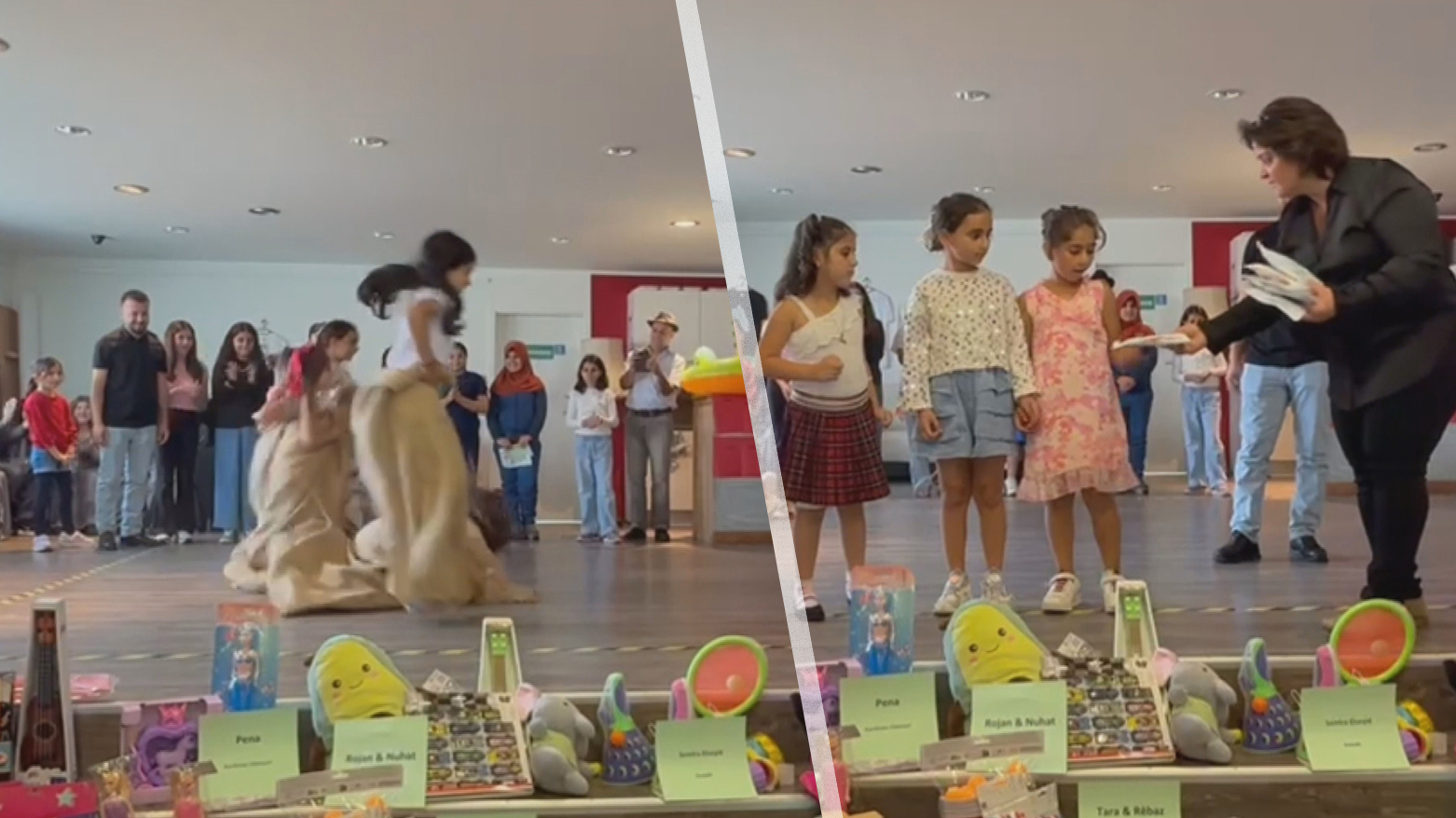Kurdish Games Revived in Germany in Effort to Preserve Cultural Heritage
The Kurdish-German Association in Schleswig is reviving traditional games to connect diaspora youth with their heritage, part of a wider effort by Germany’s Kurdish community to preserve cultural identity and strengthen representation.

ERBIL (Kurdistan24) – In a vibrant effort to safeguard and transmit cultural heritage to younger generations in the diaspora, the Kurdish-German Association organized a special event in the German city of Schleswig dedicated to reviving traditional Kurdish games. The initiative, driven by a community-led desire to prevent cultural disconnection, aims to familiarize Kurdish children living abroad with the rich tapestry of their ancestral traditions, ensuring that cultural identity remains a living, breathing part of their lives.
Organizers stated that the primary goal of the dedicated game day was to create a direct and engaging link between Kurdish youth and their heritage. This sentiment was echoed by participants, who expressed both enthusiasm for the event and a strong sense of responsibility for cultural preservation.
Gulê Ibrahim, one of the attendees, told Kurdistan24 that the Kurdish community has been exceptionally supportive of such activities. She voiced her hope to expand these efforts in the future, aiming "to do more for the Kurds living in Germany" and to "further familiarize their children with Kurdish games."
The event drew Kurds from across the historical four parts of Kurdistan, creating a powerful atmosphere of unity and shared identity.
Shwan, another participant, highlighted the importance of these gatherings as a bulwark against cultural erosion. He called for more frequent commemorations of national occasions and a sustained promotion of activities that keep diaspora youth connected to their roots, preventing them from becoming "disconnected from their culture."
The Kurdish-German Association in Schleswig has been a consistent force in this endeavor, regularly organizing a variety of cultural activities with the explicit aim of fostering a strong sense of identity among Kurdish children.
The Role of "Soft Culture" in Identity Preservation
The revival of traditional games in Schleswig is a potent example of "soft culture" in action—the use of non-coercive cultural elements like arts, traditions, and recreation to foster a sense of shared identity and belonging.
For a diaspora community like the Kurds, such initiatives are not merely nostalgic pastimes; they are essential tools for survival and continuity.
By teaching children games played by their ancestors, community leaders are transmitting values, language, and social norms in an accessible and enjoyable format. This process of cultural transmission is critical in an environment where assimilation can often lead to the gradual fading of heritage.
Events like this create a space where being Kurdish is celebrated and reinforced, building a resilient cultural foundation that can withstand the pressures of living in a different society. It strengthens communal bonds and provides younger generations with a tangible connection to a homeland many have never seen, ensuring that the Kurdish identity remains dynamic and relevant for years to come.
Kurdish Diaspora in Germany
Germany is home to the largest and one of the most established Kurdish diaspora communities in the world.
According to figures from the Fondation Institut kurde de Paris and The Kurdish Project, estimates place the Kurdish population in Germany at approximately 650,000, with some sources suggesting even higher numbers.
The formation of this significant community began in the 1960s, as Kurds from Türkiye arrived as "gastarbeiter" or guest workers under bilateral labor agreements. This initial wave of economic migration was followed by successive waves of political refugees fleeing persecution and conflict, including the 1979 Islamic Revolution in Iran, the 1980 military coup in Türkiye, and Saddam Hussein’s genocidal Anfal campaign against the Kurds in Iraq.
This large and diverse community has evolved into a vibrant hub of Kurdish cultural and political life in Europe.
As documented by the Fondation Institut kurde de Paris, the diaspora has played a crucial role in preserving and developing Kurdish language, literature, and music, particularly when such expressions were suppressed in their homelands.
Beyond cultural preservation, the diaspora in Germany has become a powerful political force, advocating for Kurdish rights and raising awareness among Western audiences about the struggles faced by Kurds.
This activism is increasingly visible in mainstream German politics, with a historic seven Kurdish lawmakers securing seats in the German Bundestag in recent elections, as reported by Kurdistan24.
The community’s efforts to build lasting institutions are also gaining momentum.
As previously reported by Kurdistan24, initiatives like the establishment of a Kurdish-German University in Dresden, set to open by 2026, and the annual Kurdish Film Days in Munich, demonstrate a sophisticated and structured approach to embedding Kurdish identity within the European academic and cultural landscape.
These institutions, along with grassroots events like the revival of traditional games in Schleswig and large-scale Newroz celebrations in cities like Cologne, collectively ensure that the Kurdish diaspora in Germany is not just a community of memory, but a forward-looking one actively shaping its future and the future of the Kurdish nation on the global stage.